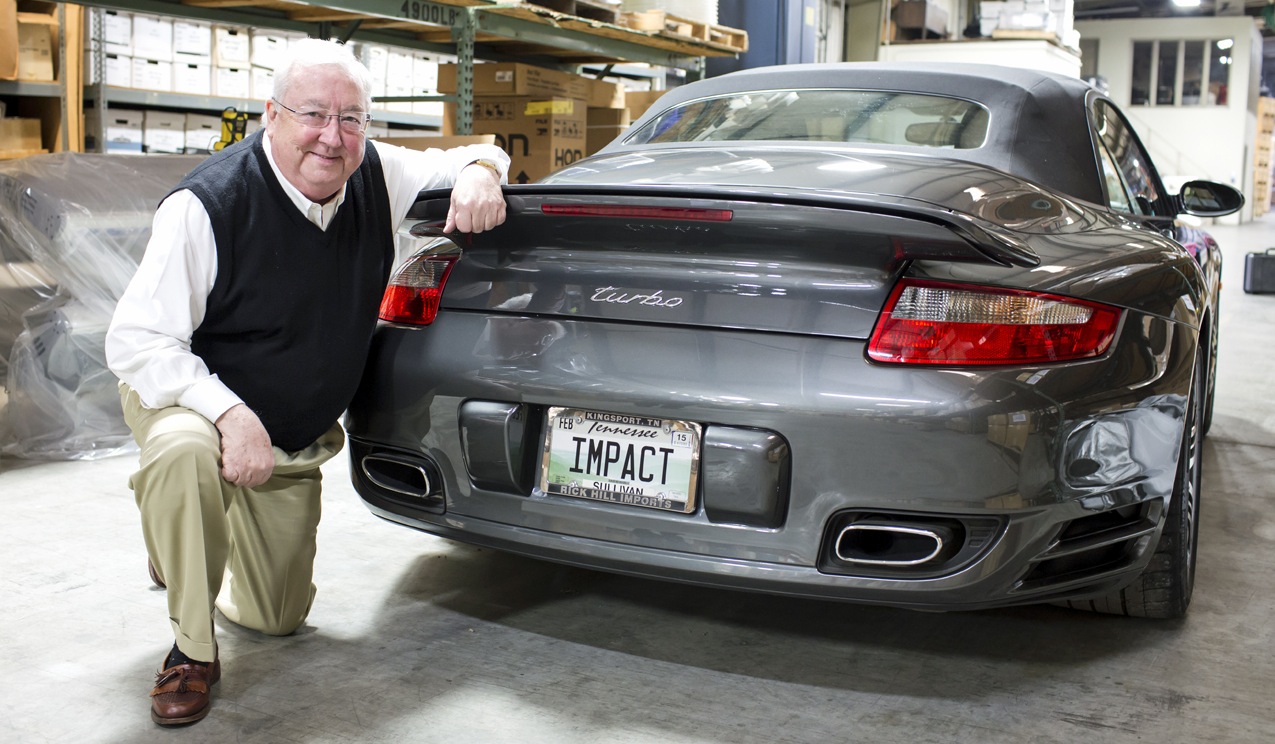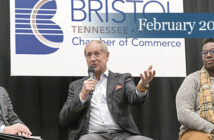By Scott Robertson
Where there is no vision, the people perish…
– Proverbs 29:18
A little over a year ago, while some were still bemoaning the death of American manufacturing, Gerald O’Connor, founder of Impact Plastics in Unicoi County, Tenn., announced plans to expand his local operations to the tune of $1.3 million. That expansion, O’Connor said at the time, would result in the creation of 83 new jobs and would support the growing automotive manufacturing industry in Tennessee.
So much for the death of American manufacturing.
How did O’Connor come to the point of being ready to expand at just the right time? Well, if you listen to his own explanation of it, he was simply operating with an eye toward the future.
“If you don’t have a vision, you’re not going anywhere,” O’Connor says. “We were at a point where we were very comfortable. We were basically debt free and we were just sitting here thinking about what to do. We had been thinking about automotive for some time.” Even though the automotive industry was on a downturn, with production having dropped to between 12 and 13 million vehicles a year, O’Connor didn’t see decline. He saw an industry that was about to be hungry for his services.
“I think the automotive industry was desperate,” O’Connor says now. “You saw all these people up in the north going bankrupt. The automotive people were shutting plants down but Tennessee was very aggressive about going after the automotive business. So we took a hard look at it, stepped back and looked at it and said, ‘if these people are locating down in Tennessee the business segment that we might be more interested in at this time would be automotive. With the fact that the current administration is very successful in recruiting automotive industries into the area, in the south in general, we thought that was a great opportunity.”
The expansion is just the latest success story for O’Connor, who started Impact on a shoestring, renting time on other manufacturers’ machines to fill his orders.
“Back in ’68 I had to design a mold,” he remembers. “I was making product and renting machine time from Bob Williams. He had some injection molding machines in Johnson City. I was actually running the machines myself, loading the machines, putting the plastics in the card. I worked a regular job in the daytime and at night I’d go over there and run the machines and pack them out.”
So O’Connor would work his full-time day job, then head over to Williams at night to run the machines. “One night there was nobody else there and I was running a part for a child’s car restraint seat,’ O’Connor remembers. “It was late and it was cold and parts were hot as they were coming out. I fell asleep and fell over on the boxes and the next morning the operators came in and saw the machines running and all the parts piled up and didn’t know where I was. I was buried under the parts, sound asleep.”
That kind of commitment, the willingness to work until he was literally exhausted, helped O’Connor get the grants and loans to purchase his first machines and start Impact’s Unicoi County operations.
“In my business, when I started it, you had to have a vision and then you had to have a plan to initiate the vision,” O’Connor remembers. “In manufacturing if it wasn’t for Carter County Bank, we’re talking about loans of hundreds of thousands of dollars every several months for new equipment and everything. If I didn’t have a bank that was there to support us we never would’ve gotten here.”
“We started off with a couple of hundred thousand dollars and our peak sales got up to about $15 million,” O’Connor says. That $15 million peak came just before the winter of 2008, when the economy turned.
That’s when vision came into play. O’Connor says he knew his company’s fortunes were dependent to a large extent on the economy, but he also knew he could do things to make sure he was ready for the recovery on day one.
“This is tied to the economy,” he says, “the housing industry, the point of purchase business, automotive. That economy goes down, everything slows down.”
“But right now, we’re at resurgence, we added more equipment, we expanded, and we continue to expand right now. We’re looking that in three to five years we’ll back to $17 to $20 million.”
O’Connor is quick to credit his workforce for making that resurgence possible. “When we went into automotive, we knew we were going to be very quality conscious. We have not made one bad part in 2 ½ years in supplying the automotive industry. Not one bad part; and we’ve made millions of parts. It’s always a real good feeling when we get the verification of 100 percent quality rating.”
O’Connor, who took community college classes while working for Connell Engineering in the 1960s, is a passionate supporter of Tennessee Governor Bill Haslam’s Tennessee Promise higher education initiative. “One of the greatest things the state of Tennessee now has is the offer of two years free community college education. That’s fantastic. I don’t think any other state in the union has that.”
It’s easier to focus on a vision for the future when the state is focused on making sure you have a workforce that can handle the job, says O’Connor, who keeps a large “Haslam for Governor” campaign sign in the work area.
But vision isn’t just focused outward toward the future, says O’Connor. One must be willing to look inward with a critical eye as well.
“I remember a column Shelburne Ferguson wrote back in 1986,” O’Connor says.
“It was called, ‘Know what business you’re in.’ I read that and I thought that I was just in the plastic business, the injection molding business. But I’m not; I’m a converter of raw materials. I convert whatever the plastic material is, into a product. It does not always have to be polystyrene or propylene, nylon. It could be Eastman’s Tenite. It could be fiberglass, vacuum molding, injection molding. I’m really not an injection molder of a specific type. We convert product, we convert materials.”
“We do work for AO Smith, American Water Heater from Johnson City. We do work for Bell Helicopter in Piney Flats. We do work for Britax, which is a baby furniture company. They make strollers and car restraint seats. We do molding for them. Anyone that’s an OEM that uses injection molding, we can work with,” O’Connor says. “I don’t build a box around myself.”
“Business is very competitive; you’re always going to have to have a vision. If you don’t have a vision, you’re not going anywhere. You can’t just go along and say, ‘I’m going to do this one thing.’ Because you’re not. It’s going to change; it doesn’t change as rapidly in my industry as you see in the computer industry or in the IT business. But our business changes probably on a yearly basis. We’re doing work now for Nissan, Subaru, GM, and Mercedes. It just keeps growing, growing, growing and it keeps evolving.”
Constant innovation keeps O’Connor enthused, he says. “What’s exciting about my business is I see everything before everybody else sees it. There’s always something new. I see something new every day.
“We’re looking at the Tesla, the 2017 Tesla right now, the component parts for the Tesla. We’re looking at the Daimler Chrysler that starts in 2018 through 2026. It’s a new car the Germans are coming out with.
“One of the most exciting things is out there right now is called Rapid Model Prototyping. Everybody’s going to have one of these things. It’s kind of like the printer. There is one in Knoxville or Chattanooga where they were going to make a car by Rapid Model Prototyping. An actual-size car. Can you imagine?”
One can see the delight on O’Connor’s face as he talks about the latest innovations in American manufacturing. It’s one thing to love one’s work. It’s another to maintain a level of enthusiasm that borders on fascination after 40 years in the industry.
But it’s not the looking back at 40 years of accomplishments that gives O’Connor satisfaction in his work, he says. It’s the opportunity to constantly look forward. “Without having a vision, there is no future,” O’Connor says. “If you’re just sitting there and you’re content with what you’re doing, the world will pass you by.”
Don’t look for anyone to pass by Gerald O’Connor anytime soon.






